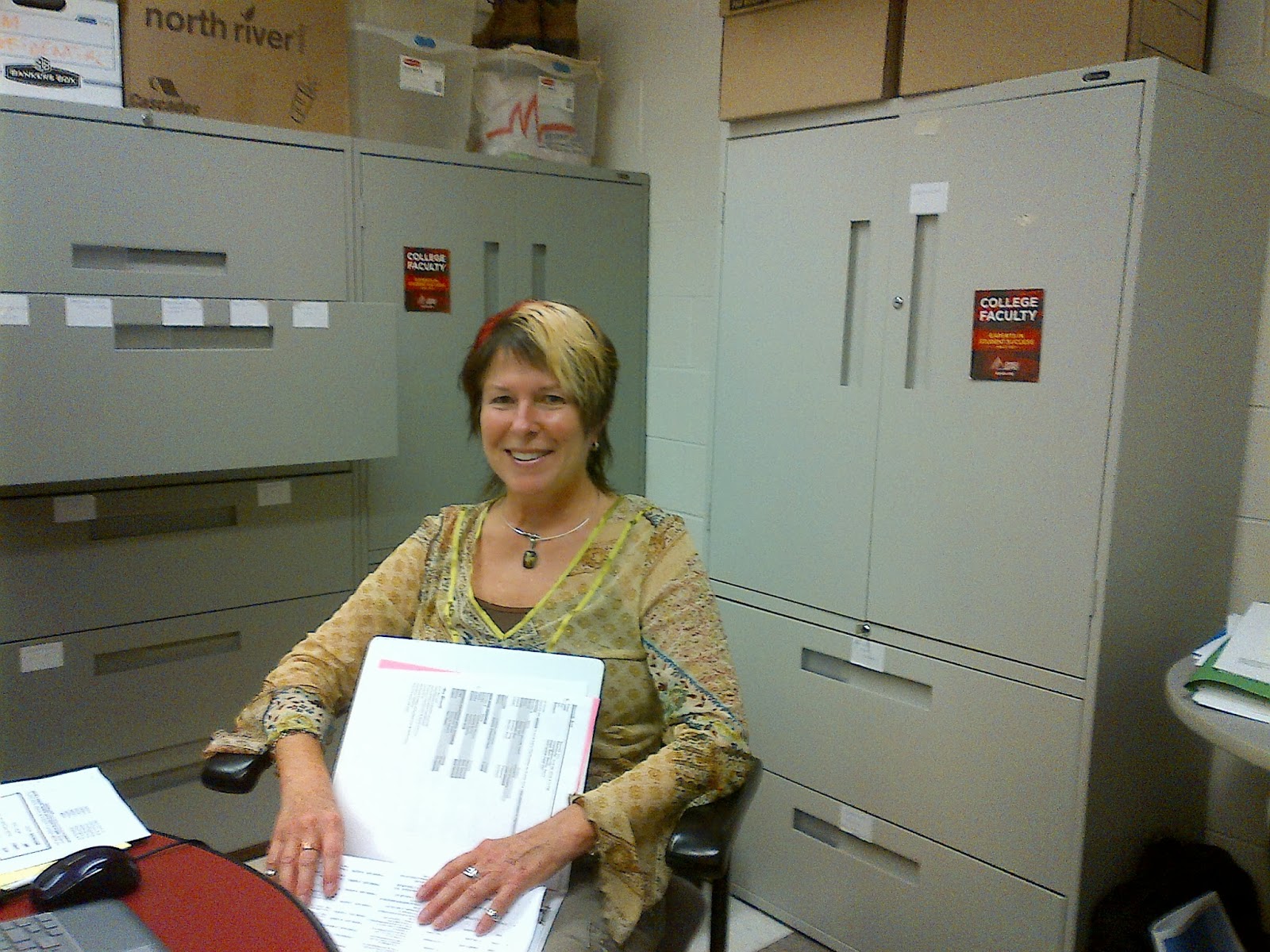 |
| Geoff Ondercin Bourne, hard at work |
The answer is decidedly mixed. While Mohawk's investment in infrastructure has helped boost its KPI scores, it has simultaneously pursued an online education strategy that is by far the most autocratic and undifferentiated in the Ontario college system. This strategy has received significant push-back from both students and faculty, but to date none of this critical feedback has been considered by management.
 |
| Chief Steward Ann Bennet |
In 2011, in response to growing concerns about management's push toward online education in a top-down and "across the board" manner, Local 240's Political Action Committee (PAC) hosted a focus group for students and faculty to talk openly together about online learning. The Local also did a rigorous survey of just under 900 students, and produced a Report on Online Learning from the survey and focus group results.
The focus groups revealed that faculty had considerable reservations about the academic quality of online education, and both the survey and focus groups showed that a majority of students preferred face to face over online instruction. Concerns were particularly raised about how online learning affects access based on language, socioeconomic status, and disability. These concerns were also prominent in the academic literature on online education.
Instead of considering the findings in the Local 240 report, in 2012 Mohawk management doubled-down on its previous online learning targets, and decreed that all courses taught at the college would lose 1 hour of face to face class time, to be replaced by an hour fully online. The decree completely contradicted the Report on Online Learning's recommendations, and revealed just how little concerns about student success and faculty academic expertise factor into management decision-making. With no ability to control the way in which online learning is implemented, or to advocate for their students, Mohawk professors have come to realize just how serious a lack of academic freedom is.
I'll further explore the complex issue of online education in my next entry...

Education is what survives when what has been learned has been forgotten.
ReplyDeleteWrite My Dissertation
Such great information. thanks for sharing this nice information with us.
ReplyDeleteCoursework Help Online
Education is what survives when what has been learned has been forgotten.
ReplyDeleteOnline Coursework Help